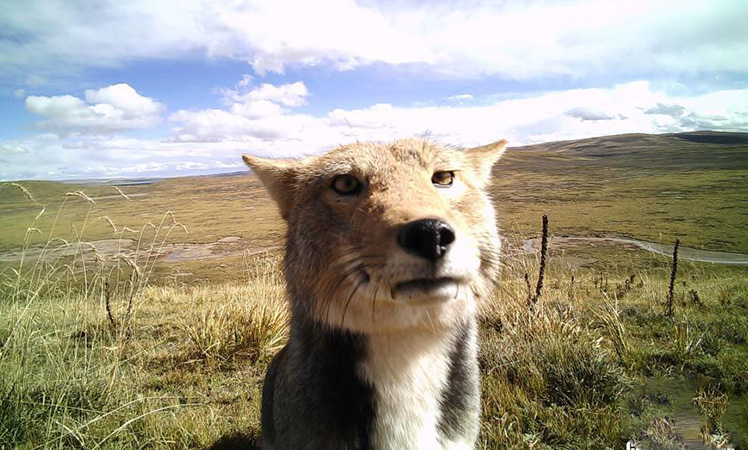IPCC report sounds alarm on climate change for next 20 years
GENEVA, Feb. 28 (Xinhua) -- The planet is facing multiple unavoidable climate hazards over the next two decades with global warming of 1.5 degrees Celsius, and even temporarily exceeding this warming level could result in additional severe irreversible impacts, the Intergovernmental Panel on Climate Change (IPCC) warned in its latest report on Monday.
The IPCC publishes comprehensive scientific reports on the impact of climate change every six to seven years. These integrate reports by three separate working groups of experts.
In the latest report by Working Group II, "Climate Change 2022: Impacts, Adaptation and Vulnerability," IPCC highlights that climate change caused by human beings is affecting the lives of billions of people around the world, despite efforts to reduce risks. Those people and ecosystems least able to cope are being hardest hit.
"One of the most urgent areas for action is the world's coastal cities," said IPCC Working Group II Co-Chair Debra Roberts, in an exclusive interview with Xinhua. "They are at the forefront of experiencing some of the most immediate climate change impacts."
She holds the view that though growing urbanization and climate change create complex risks for cities already experiencing poorly-planned urban growth, cities also provide opportunities for climate action, with green buildings, reliable supplies of clean water and renewable energy, and sustainable transport systems that lead to a more inclusive, fairer society.
The loss of ecosystems is another crucial impact of climate change to address, said Hans-Otto Poertner, another co-chair of the report.
"We are seeing a progressive loss of biodiversity, which is the foundation for healthy ecosystems that are providing humans with services like clean water," he told Xinhua.
By restoring degraded ecosystems and conserving 30 to 50 percent of Earth's land, freshwater and ocean habitats, society can benefit from nature's capacity to absorb and store carbon, Poertner said. This would assist in sustainable development.
He also called for international collaboration on climate action, especially from large resource countries that are causing the largest percentage of climate change. "We are all in the same boat," he said. "There's no area of the planet that is safe from the impacts of climate change."
Governments, the private sector and civil society should come together to tackle climate change, says the report, by prioritizing risk reduction as well as equity and justice in decision-making and investment.
"In this way, different interests, values and world views can be reconciled," said Roberts. "Failure to achieve climate resilience and sustainable development will result in a sub-optimal future for people and nature."
Warning of a narrowing window for climate action, the report underlines that climate resilient development is already challenging at current warming levels, and will become more limited if global warming exceeds 1.5 degrees Celsius, even impossible in some regions if global warming exceeds 2 degrees Celsius.
"The scientific evidence is unequivocal: climate change is a threat to human wellbeing and the health of the planet. Any further delay in concerted global action will miss a brief and rapidly closing window to secure a liveable future," said Poertner.
Hoesung Lee, Chair of the IPCC, also sounded the alarm, saying this latest report "shows that climate change is a grave and mounting threat to our wellbeing and a healthy planet. Our actions today will shape how people and nature responds to increasing climate risks."
Photos
Related Stories
- U.S. faces clear, tangible threat from climate change
- Retired Navy admiral urges U.S. to work with China on climate, pandemic
- Chinese institutes generate high-resolution snow cover dataset
- Chinese envoy warns against pan-securitization of climate issues
- China among biggest gainers in global fight against climate change: Singapore media
Copyright © 2022 People's Daily Online. All Rights Reserved.










